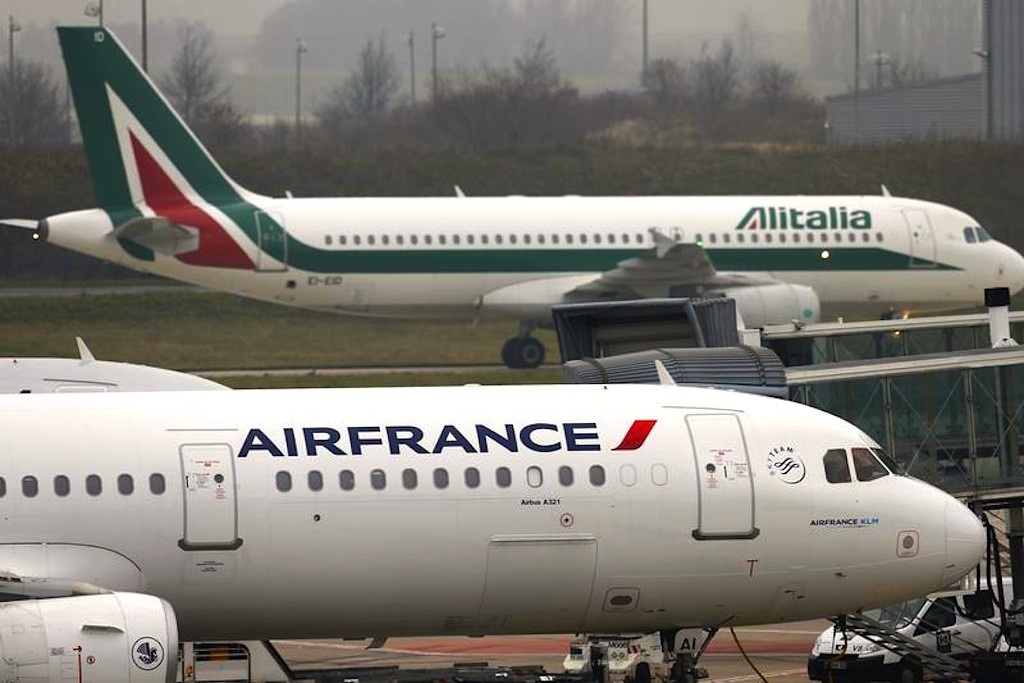- Nigeria Clears Foreign Airlines’ $600m Trapped Funds
The International Air Transport Association on Tuesday announced that Nigeria had cleared the backlog of $600m trapped funds belonging to foreign airlines operating in the country.
The Director-General and Chief Executive Officer, IATA, Alexandre de Juniac, disclosed this at the association’s 74th Annual General Meeting and World Air Transport Summit in Sydney, Australia.
According to him, the amount of airline funds blocked from repatriation totalled $4.9bn globally at the end of 2017, which was seven per cent lower than the 2016 figure.
He stated that airlines’ funds, however, remained blocked in 16 countries, according to a statement on the IATA website.
De Juniac added, “We have had some recent success. The $600m backlog in Nigeria has been cleared. And we have made $120m of progress from a peak of over $500m in Angola. I encourage the government of Angola to work with airlines to help to reduce this backlog further.
“The top five markets with blocked funds are Venezuela, where airlines have been unable to repatriate $3.78bn; Angola, where approximately $386m remains blocked; Sudan, where $170m is blocked; Bangladesh, where $95m is blocked; and Zimbabwe, where $76m is blocked.”
According to de Juniac, given the deepening economic crisis in Venezuela, a resolution appears to be unlikely in the short term.
“But we are encouraged by the recent developments in Nigeria and Angola, and hope other states will also move quickly to address blocked funds,” he added.
The global commodities price crash that began in 2014 hit economies across Africa hard, particularly big resource exporters such as Angola and Nigeria, and according to experts, low oil and mineral prices reduced government revenue and caused chronic dollar shortages as well as immense pressure on local currencies.
The fiscal slump made governments to restrict foreign airlines from repatriating their dollar profits in full, and Nigeria owed airlines $600m but as of October 2017, the amount had fallen to $221m.
De Juniac called on governments to abide by international agreements and treaty obligations to enable airlines to repatriate revenues from ticket sales and other activities.
“The connectivity provided by aviation is vital to economic growth and development. Aviation supports jobs and trade, and helps people to lead better lives. But airlines need to have confidence that they will be able to repatriate their revenues in order to bring these benefits to markets,” he stated.
Meanwhile, the IATA and the African Airline Association have signed a Memorandum of Understanding to deepen their cooperation.
The MoU was signed by de Juniac and AFRAA’s Secretary General, Abderahmane Berthé, on the sidelines of the IATA AGM.
Under the MoU, IATA and AFRAA will exchange information, expertise and capabilities, and work jointly to enhance safety by assisting airlines to successfully implement the IATA Operational Safety Audit, the IATA Safety Audit for Ground Operations and IATA Ground Handling Manual.
According to the statement, it will also promote regional air connectivity by working jointly with governments to implement the Single African Air Transport Market as well as encourage data exchange among aviation stakeholders to improve passenger experience and enhance security through capacity building.
IATA said the MoU would also liberate airline funds blocked by governments from repatriation by advising on best practices to clear backlogs, and achieve reasonable levels of taxes and charges by helping governments to focus on the social and economic benefits of aviation.


 Naira4 weeks ago
Naira4 weeks ago


 Naira4 weeks ago
Naira4 weeks ago


 Naira3 weeks ago
Naira3 weeks ago


 News4 weeks ago
News4 weeks ago
 Travel4 weeks ago
Travel4 weeks ago




 Naira4 weeks ago
Naira4 weeks ago


 Jobs3 weeks ago
Jobs3 weeks ago
 Naira3 weeks ago
Naira3 weeks ago





















